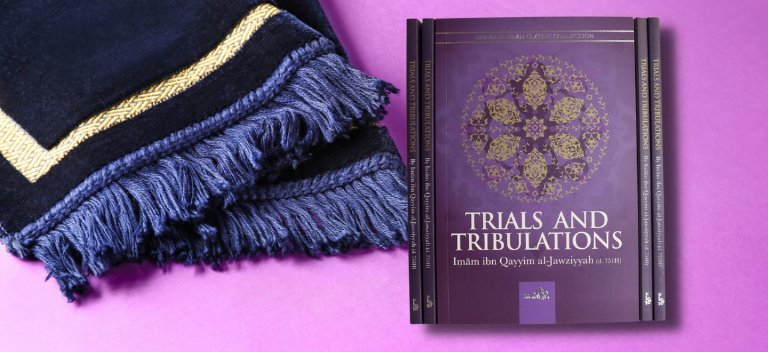Islam is based on truth and evidences, not whims and desires. We do not make decisions and rulings based on our emotions or because of our love for a family member, friend, shaikh, Imam, so-on-and-so-forth.
When we find authentic Islamic proof from the Qur’an and sunnah we should submit whether we like it or not. We all know that Islam is a complete way of life. Allah says in Surah 5:3, “Today I have perfected your faith for you, completed My favor upon you, and chosen Islam as your way.”
I was reading The Concise Presentation of the Fiqh of The Sunnah and The Noble Book by Dr. Abdul-Azeem Badawi, translated by Jamaal Al-Din M. Zarabozo, and came across a hadith that says:
Ibn Umar said, “The Messenger of Allah (saws) used to raise his hands parallel his shoulders when he begin the prayer, when he made the takbeer to start his bow, when raising his head from bowing as well.” (recorded by Bukhari, Muslim, Tirmidhi, and Nasa’i)
This simple but yet meaningful act of raising the hands has been found to be authentic but not done by every Muslim in prayer, why? Because this hadith may not have gotten to Imam Abu Hanifa (ra) at his time he did not raise his hands in prayer.
But, today we do have this authentic hadith, and we still do not perform this act as a whole. The way of the four imams (may Allah be pleased with them all) was to obey Allah and His Messenger (saws). They all said their madhab is that of the Qur’an and Sunnah. They were in obedience to Allah and His Messenger (saws) based on proof and evidences that came to them and they would adjust their position humbly if they found themselves to be wrong.
The above hadith is just an example I’m using for bigger matters within our religion. If we cannot obey Allah and His Messenger (saws) in small matters we are doomed. To argue with Allah and His Messenger (saws) is a scary thing.
We live in this testing ground for a short amount of time so we should forget ourselves and live as Muslims. A Muslim is one who submits his/her will to Allah in peace. We struggle against ourselves and the shayatin in order to be obedient to Allah and His Messenger. Allah says:
“O believers! Obey Allah and obey the Messenger and those in authority among you. Should you disagree on anything, then refer it to Allah and His Messenger, if you ‘truly’ believe in Allah and the Last Day. This is Best and fairest resolution.” The Clear Qur’an 4:59
Tafsir Ibn Kathir explanation of Surah 4:59
Al-Bukhari recorded that Ibn `Abbas said that the Ayah,
(Obey Allah and obey the Messenger, and those of you who are in authority.) “Was revealed about `Abdullah bin Hudhafah bin Qays bin `Adi, who the Messenger of Allah sent on a military expedition.” This statement was collected by the Group, with the exception of Ibn Majah At-Tirmidhi said, “Hasan, Gharib”. Imam Ahmad recorded that `Ali said, “The Messenger of Allah sent a troop under the command of a man from Al-Ansar.
When they left, he became angry with them for some reason and said to them, `Has not the Messenger of Allah commanded you to obey me’ They said, `Yes.’ He said, `Collect some wood,’ and then he started a fire with the wood, saying, `I command you to enter the fire.’
The people almost entered the fire, but a young man among them said, `You only ran away from the Fire to Allah’s Messenger. Therefore, do not rush until you go back to Allah’s Messenger, and if he commands you to enter it, then enter it.’ When they went back to Allah’s Messenger, they told him what had happened, and the Messenger said,
(Had you entered it, you would never have departed from it. Obedience is only in righteousness.)” This Hadith is recorded in the Two Sahihs. Abu Dawud recorded that `Abdullah bin `Umar said that the Messenger of Allah said,
(The Muslim is required to hear and obey in that which he likes and dislikes, unless he was commanded to sin. When he is commanded with sin, then there is no hearing or obeying.) This Hadith is recorded in the Two Sahihs.
Ubadah bin As-Samit said, “We gave our pledge to Allah’s Messenger to hear and obey (our leaders), while active and otherwise, in times of ease and times of difficulty, even if we were deprived of our due shares, and to not dispute this matter (leadership) with its rightful people. The Prophet said,
Except when you witness clear Kufr about which you have clear proof from Allah.)” This Hadith is recorded in the Two Sahihs. Another Hadith narrated by Anas states that the Messenger of Allah said,
(Hear and obey (your leaders), even if an Ethiopian slave whose head is like a raisin, is made your chief.) Al-Bukhari recorded this Hadith. Umm Al-Husayn said that she heard the Messenger of Allah giving a speech during the Farewell Hajj, in which he said;
(Even if a slave was appointed over you, and he rules you with Allah’s Book, then listen to him and obey him.) Muslim recorded this Hadith. In another narration with Muslim, the Prophet said,
(Even if an Ethiopian slave, whose nose was mutilated…) In the Two Sahihs, it is recorded that Abu Hurayrah said that the Messenger of Allah said,
(Whoever obeys me, obeys Allah, and whoever disobeys me, disobeys Allah. Whoever obeys my commander, obeys me, and whoever disobeys my commander, disobeys me.) This is why Allah said,
(Obey Allah), adhere to His Book,
(and obey the Messenger), adhere to his Sunnah,
(And those of you who are in authority) in the obedience to Allah which they command you, not what constitutes disobedience of Allah, for there is no obedience to anyone in disobedience to Allah, as we mentioned in the authentic Hadith,
The Necessity of Referring to the Qur’an and Sunnah for Judgment
Allah said,
(And) if you differ in anything amongst yourselves, refer it to Allah and His Messenger). Mujahid and several others among the Salaf said that the Ayah means, “(Refer) to the Book of Allah and the Sunnah of His Messenger.” This is a command from Allah that whatever areas the people dispute about, whether major or minor areas of the religion, they are required to refer to the Qur’an and Sunnah for judgment concerning these disputes. In another Ayah,
Allah said,
(And in whatsoever you differ, the decision thereof is with Allah). Therefore, whatever the Book and Sunnah decide and testify to the truth of, then it, is the plain truth. What is beyond truth, save falsehood
This is why Allah said,
(if you believe in Allah and in the Last Day.) meaning, refer the disputes and conflicts that arise between you to the Book of Allah and the Sunnah of His Messenger for judgment.
Allah’s statement,
(if you believe in Allah and in the Last Day. ) indicates that those who do not refer to the Book and Sunnah for judgment in their disputes, are not believers in Allah or the Last Day.
Allah said,
(That is better) meaning, referring to the Book of Allah and the Sunnah of His Messenger for judgment in various disputes is better,
(and more suitable for final determination.) meaning, “Has a better end and destination,” as As-Suddi and several others have stated while Mujahid said, “Carries a better reward.”




Leave a comment
This site is protected by hCaptcha and the hCaptcha Privacy Policy and Terms of Service apply.